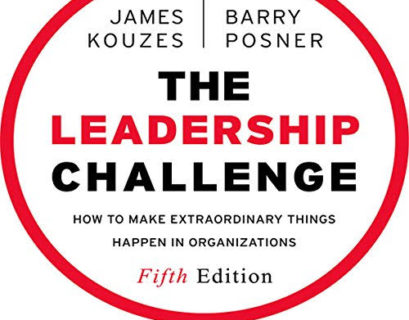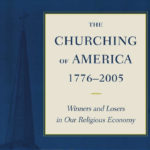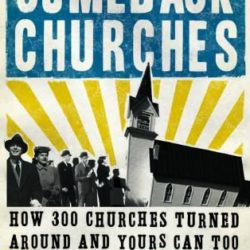By Joe Epley
I have never met a pastor that did not want to make a lasting impact.
I had the privilege recently of talking with Cecil Culbreth, a pastor in the state of Arkansas, who believes he has discovered the best way to have a lasting impact. At first this claim sounded too bold, but with over forty years of ministry experience, Culbreth meets the qualifications to make such a claim. He has served in multiple roles throughout his ministry career. From being a lead pastor for ten years after Bible college, then engaging in full time youth ministry for thirty years, as well as serving the Assemblies of God fellowship in various local and executive capacities. He currently serves as the district secretary for the Arkansas district, overseeing almost 100 missionaries and missionary associates, as well as leading in the task of walking with prospective ministers through the pastoral credentialing process. In short, Cecil meets the qualifications to say he has ‘done it all.’
As we discussed his career, it became clear that a golden thread ran through each distinct and diverse role, and it traced back to a lesson he learned during his first lead pastorate. Cecil described how he worked hard to come up with sermons Sunday after Sunday, only to find himself at a creative breaking point three years into leading a church. To be clear, up to this watershed moment his sermons had not necessarily been bad. He, like many pastors, tried to combine great life lessons, good illustrations, and engaging examples with a biblical backdrop to persuade people to grow in their faith. The problem he encountered was that, in some ways, the Bible really was just a backdrop for his sermons.
Luckily for Cecil, God uses the obvious to teach us the profound. Desperate for a shift, he returned to his notes from his recent Bible college courses. In this very elemental way, God led him to rediscover expository preaching. For the next forty plus years, Cecil would build his ministry with expository preaching as the backbone. First, expository preaching would revitalize his love for the word of God, and by extension, faithful biblical preaching. The passion this revelation gave him would turn a three-year tenure into a decade of service in his first pastoral role. It showed up again as he led the charge in distributing a student focused study Bible (called the Fire Bible), to school campuses nationwide. Expository preaching worked its way into his mentoring, and several pastors in the Arkansas district have begun to change their communities for the kingdom of God due in part to this influence.
As Cecil recounted the incredible ways in which God used expository preaching in his life, I felt compelled to ask an obvious question:
What is expository preaching?
Having taught a class on expository preaching for a number of years, he happily broke down the basic premise. Cecil explained that expository preaching allows the Bible to speak for itself. Instead of finding topics and then supporting scriptures, expository preaching seeks to wrestle with and draw out the main point of a passage of the Bible. Cecil grew more excited as he shared about the great themes of the Bible that emerge as one approaches the text through expository preaching. He chuckled as he spoke of the classic “three-point sermon” and how it could be replaced by finding the one point of a passage of scripture and drawing it out.
The goal of expository preaching seems simple, but Cecil explained that the true process is exacting and demands much of the minister. First, it involves picking a passage of scripture, then reading and re-reading it multiple times through. Without rushing into the sermon, the initial goal is to find emerging themes, thoroughly engage context, and truly letting the scripture speak. He encouraged using commentaries and word studies only after the minister spends sufficient time in prayer and asks the Holy Spirit to speak directly to the minister through the passage.
If expository preaching had simply been about working harder, it would not hold such sway in Cecil’s life and ministry. However, throughout our interview he outlined the incredible benefits he saw from expository preaching and its implementation. Outlined below are a few of those benefits:
1) Expository preaching enriches the devotional life of the minister.
The Word of God, as ministers likely can agree on, has endless depth. In the process of preparing a sermon, digging deep into the passage yields more than a good sermon, it draws the minister closer to God. Frequently, Cecil would meet with other ministers and talk about passages together. That process left each minister with a deeper sense of God’s presence and a greater knowledge of him.
2) Expository preaching leads to church growth.
Cecil spoke of churches in the Arkansas district that exemplified contemporary and growing congregations that affected lasting kingdom change. At the heart of those congregations are ministers utilizing expository preaching to give solid biblical messages that cover a wide range of biblical themes. This in turn, has created solid disciples who can share the word with others with both enthusiasm and depth.
3) Expository preaching can prevent burnout.
When pastors speak of why they move on from congregations, interpersonal conflict, stubborn board members, and church splits rank high on a list of reasons. However, Cecil spoke of hitting a creative wall with sermon building when he spoke of burnout. After years of coming up with topics and straining for fresh illustrations and impactful examples, some ministers may move on because the obligation of the pulpit becomes too much. With expository preaching, Cecil believes the minister will find plenty of sermon material.
4) Expository preaching builds a better sermon.
Cecil believes that preachers can often be tempted to spend all their time trying to come up with a topic, whereas expository preaching allows for the passage to be the topic, cutting down the initial time investment. The majority of a pastor’s prep time can be spent on details, supporting scriptures, illustrations, etc., which has the potential to create a more polished and impactful sermon.
Cecil’s final advice to ministers was both personal and professional. He spoke first of one’s personal devotion to God. A minister should read the word for its own sake, be devoted to consistent prayer, and cultivate a walk with God that defies and resists the various temptations of each season of life. In reference to a pastor’s marriage, Cecil encourages prioritizing time with family ahead of a demanding ministry schedule. Finally, he spoke of resisting the temptation to “read topics into” the Word of God. Instead, he encouraged sermons that are consistently founded on the Word of God. Upon hearing these words, I was tempted to treat them as all-to-familiar maxims. However, from his vantage point, working with ministers for a decade or more, Cecil has seen enough ruined lives and fractured churches to recognize the need for consistent practice of the basics. Whether applying to the pulpit or one’s personal life, Cecil’s devotion to expository preaching challenges every minister to grow deeper in their faith and calling.
Reflection Questions:
- Have you ever found yourself with “preacher’s block” when it comes to sermon writing?
- What can you learn from applying expository preaching principles to your own pulpit ministry?
- Which benefit would you most like to see in your ministry out of the four listed above?
- Have you considered meeting with another minister or friend for the purpose of studying a passage together or gleaning from their insights through conversation?




















